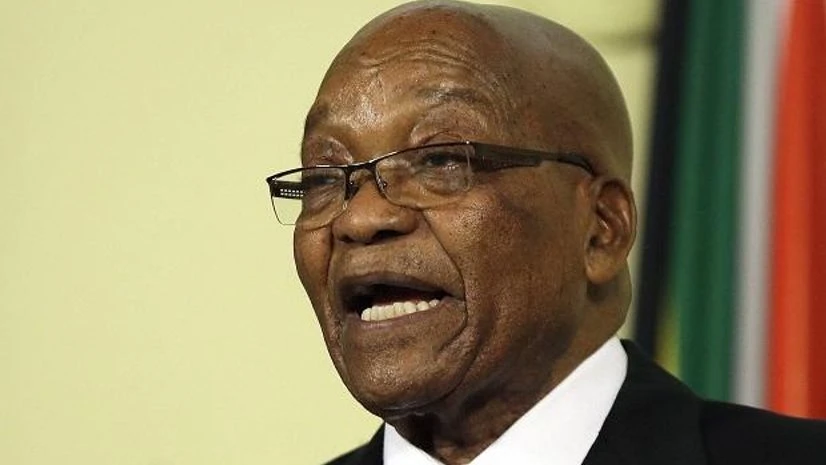South African main stock market index jumped nearly 4 per cent on Thursday, putting it on track for its biggest one-day gain in more than two years as investors welcomed the resignation Jacob Zuma as president.
Zuma quit late on Wednesday, reluctantly heeding orders by the ruling African National Congress (ANC) to bring an end to a nine-year tenure punctuated by scandals, stagnant economic growth and policy uncertainty.
The blue chip Top-40 index surged 3.6 per cent, on course for its biggest one-day gain since September 2015. The broader All-share index was up 3.3 per cent at 59,317.
"The big news is that Zuma has now resigned and that has created a lot of euphoria... South African incorporated, banks, retailers and the like are all looking sharply better as a result," said Independent Securities' trader Ryan Woods.
Deputy president Cyril Ramaphosa is expected to replace Zuma as president later on Thursday.
Ramaphosa, a former chairman of Africa's biggest telecoms operator MTN Group, is seen by business leaders and investors as well placed to turn around an economy. South Africa's GDP is estimated to grow by less than one percent this year.
More From This Section
The rand currency also advanced, extending gains for a second straight day to levels last seen nearly three years ago.
The currency has been rising since December on signs that Zuma — under whose tenure Africa's most advanced economy has hardly expanded — could be ousted.
At 0951 GMT, the rand was at 11.6225 against the dollar, 0.8 per cent stronger that its New York overnight close and at levels last seen in March 2015.
"The removal of President Zuma is the end of the beginning, not the beginning of the end," NKC African Economics said in a note.
"Financial markets, investors and business owners are not going to be distracted by the early removal of yet another sitting president for much longer and the attention will turn to what the new order intends to do and when it will do it."
(Only the headline and picture of this report may have been reworked by the Business Standard staff; the rest of the content is auto-generated from a syndicated feed.)

)
